
Global outsourcing predicted to reach $288 billion in 2013
Analyst group Gartner says in a new report that the global market for IT outsourcing is set to reach $288 billion this year. This though represents an increase of only 2.8 percent and growth is slower than predicted by previous forecasts.
Bryan Britz, research vice president at Gartner says, "Planned new adoption of ITO remains positive in all service line segments. However, constrained IT budgets, an evolving ITO delivery model, economic conditions and cost-focused buyers are limiting the growth potential of the ITO market".
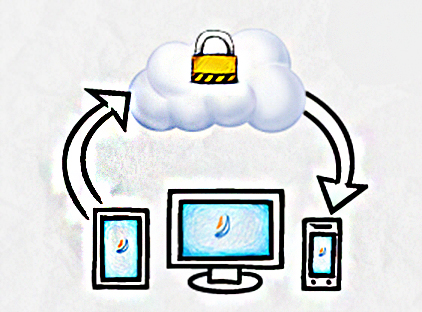
Acronis True Image 2014 beta debuts integrated cloud backup
Acronis International has announced the first public beta of its flagship backup tool, Acronis True Image 2014.
The big addition in this release is fully integrated support for backing up your system to Acronis Cloud, the company’s online storage service. Or some of your system, at least (the trial and full versions come with 5GB of storage space, free for 1 year).

Automated migration makes for a cloudier business outlook
One of the things that puts businesses off moving their systems to the cloud is the problem of migrating all of their applications and data to a remote platform. Californian company CloudVelocity aims to address this with its launch of One Hybrid Cloud, a package that streamlines the movement of information to Amazon Web Services (AWS).
One Hybrid Cloud effectively makes AWS an extension of the corporate data center, making it possible to run existing Linux and Windows apps in the cloud without modification. It automates many of the processes required to migrate apps to the cloud and in the process the developers reckon it can reduce migration expenses by more than 90 percent.

New platform helps enterprises control documents and embrace BYOD
Point.io has released its new Baas (Backend as a Service) platform. Aimed at document management and workflow, Point.io's offering is designed to help companies maintain control of their content whilst enabling BYOD (Bring Your Own Device).
The application allows developers to build mobile apps that let users access and share content on any device efficiently and securely. Ron Rock, CEO of Point.io says, "By design, enterprises have been locking down their content for decades, but with the shift in workforce mobility it's become critical that content, and the workflows that thrive on it, are unleashed to devices beyond the corporate firewall".

Active Directory-as-a-Service? Azure, Intune hinting at a cloud-hosted AD future
When Active Directory first hit the enterprise computing scene over a decade ago, the tech pundits dismissed AD as just another Microsoft sideshow. Something that would never see any widescale adoption in the face of NetWare and other heavy hitters in the LDAP arena. Even longtime Microsoft watcher Paul Thurrott got it wrong and doubted success. Thirteen years later and organizations small and large live and die by their Active Directory domains.
It's funny, then, that AD is the sole dinosaur running atop on-premise servers at corporations worldwide which supposedly "can't" be moved to the cloud. Microsoft has been busily converting its on-premise products into cloud platforms with relatively good results over the last 3-4 years. While Microsoft surely doesn't want to become a has-been within the physical server arena for organizations hesitant to move to the cloud, it no doubt has been playing two face when it comes to on-prem vs cloud-hosted solutions.

Cloud-in-a-Box allows developers to deploy solutions fast
Development company FatFractal has launched its new Cloud-in-a-Box solution to make it easier for enterprises to deploy software in public or private clouds or in traditional data centers.
The company's Platform as a Service (Paas) and Backend as a Service (BaaS) products allow developers to create tailored solutions without the need for repetitive steps. FatFractal CEO, Kevin Nickels says, "We've hit the right balance between out-of-the-box services like security, scalability and performance without limiting the developer’s ability to do whatever they want".
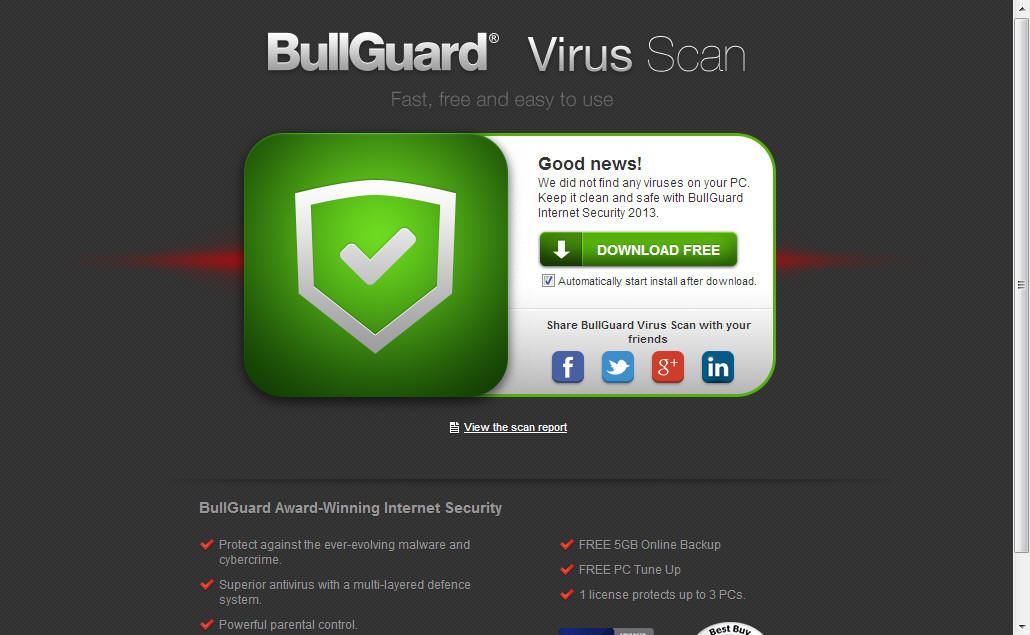
BullGuard launches free online virus scan
One man's virus is often another's legitimate program or cookie, so whatever antivirus software you have installed it's always useful to be able to get a second opinion from time to time. There are already a number of online scans you can use for this and BullGuard is the latest to join the party with today's launch of its own free scanner.
Unlike some of the alternative offerings, BullGuard works by adding a plug-in to your browser. This lets you run the scan at any time with just a single click on a toolbar button so you don't have to remember the website address or where you filed the bookmark. It supports all of the popular browsers too. The scan, which took just a couple of minutes using the Chrome plug-in on my -- not quite as fast as it used to be -- Windows 7 laptop, looks for viruses and checks that your current security is up to date.

More power and flexibility from 1&1's Dynamic Cloud Server
Leading web host company 1&1 Internet has launched a new cloud server package that delivers user configurable resources to bring greater efficiency to business users.
The adjustable resources -- processor cores, RAM and hard disk space -- are configurable upwards and downwards by the user at any time. This offers the capacity for a very high performance resource at a low cost. The pricing model is clearly set out with costs per hour for each core and gigabyte of RAM and disk space. Changes become active within five minutes and there's no minimum contract term involved.
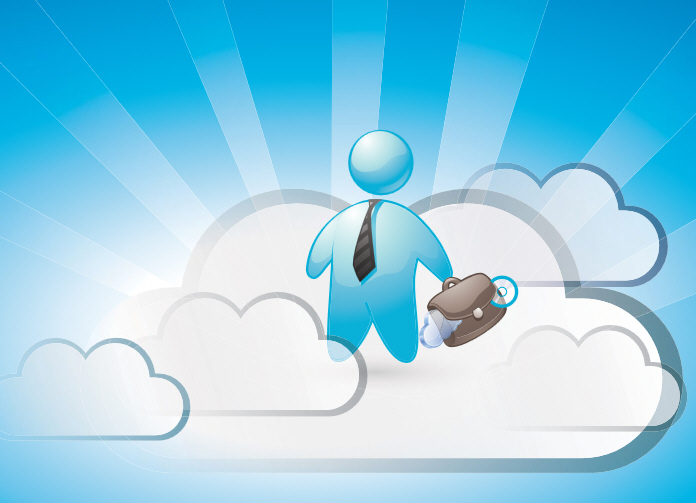
Microsoft partners find more profit and more customers from the cloud
A study unveiled at Microsoft's Worldwide Partner Conference in Houston shows that partners with more than half their revenue related to the cloud had higher gross profits, more new customers and faster business growth.
The study by IDC goes to highlight the changes taking place in the business world as more organizations shift their systems to the cloud rather than keeping them in house. "Cloud alone hasn't caused these impressive numbers, though that is absolutely part of it; top-performing partners were visionaries that took on cloud technologies before their peers," says Darren Bibby, program vice president of Channels and Alliances Research at IDC. "We're at the point in the industry's overall cloud transition where partners that don't move some of their business to the cloud likely won't survive. And some partners that are getting ready to sell their business or retire may be OK with that. Most won't be".
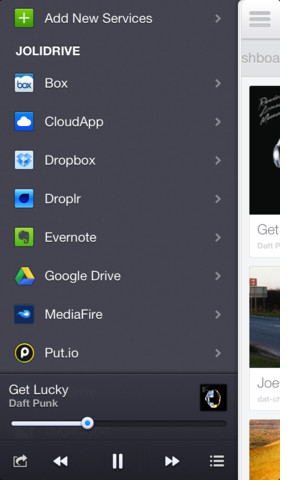
Jolidrive brings your personal cloud to iOS
With all of the cloud and social apps these days, our content becomes increasingly spread across vast reaches of the Internet. It is a modern-day problem that is less easy to solve than you may believe and accomplishing the feat has generated its own mini-industry within the tech world.
One service aiming to unify our vast web of data is Jolicloud, which uses its Jolidrive app to bring this sprawling mess together in a central location for customers to access. Now the service releases its iOS app, which is built for both iPhone and iPad and brings together much of your cloud-based life.
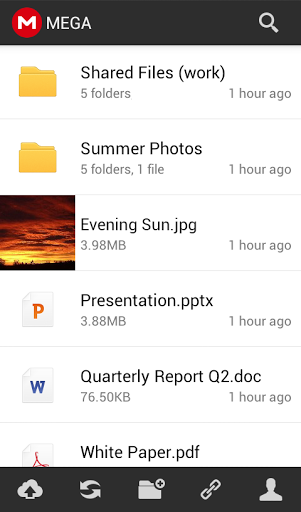
Mega gets official Android app, iOS and Windows clients to follow
Cloud storage locker Mega has turned a blind eye to the ever increasing popularity of mobile devices, offering no official app for Android or iOS (let alone BlackBerry or Windows Phone) to complement its security-oriented service. Now, though, Mega looks to finally fix the oversight.
The cloud storage locker just introduced its first mobile app called Mega which, at least at the moment, is only available for Android devices. The offering, according to the changelog, was "acquired by MEGA and is now being maintainted [sic] by MEGA contractors". Let's take a look at the features.
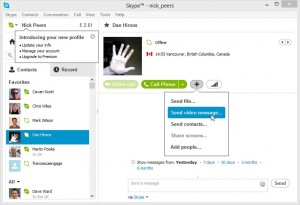
Skype 6.6 for Windows and Mac offers video messaging tweaks, squashes bugs
Microsoft has released Skype 6.6 for Windows and Mac, which introduces minor updates to the company's popular chat service that "focus on quality by addressing user feedback and improving ease of use".
Version 6.6 concentrates on adopting consistent entry points for sending video messages across all platforms, plus implementing a number of platform-specific fixes.

Google Reader reaches death's door: Here are five options you may not know
The date we dreaded has rolled around -- Google Reader is scheduled to be executed at day's end. Loyal followers must make hard decisions regarding where they wish to take their business. And, in the wake of the original Google announcement, that has become increasingly difficult.
There are big names in this game, with Feedly already an established player and both AOL and Digg entering the market afterwards. I am a Feedly user since the death warrant was served, but I am less than thrilled with the experience and feel forced to begin a search for a less obtrusive alternative.
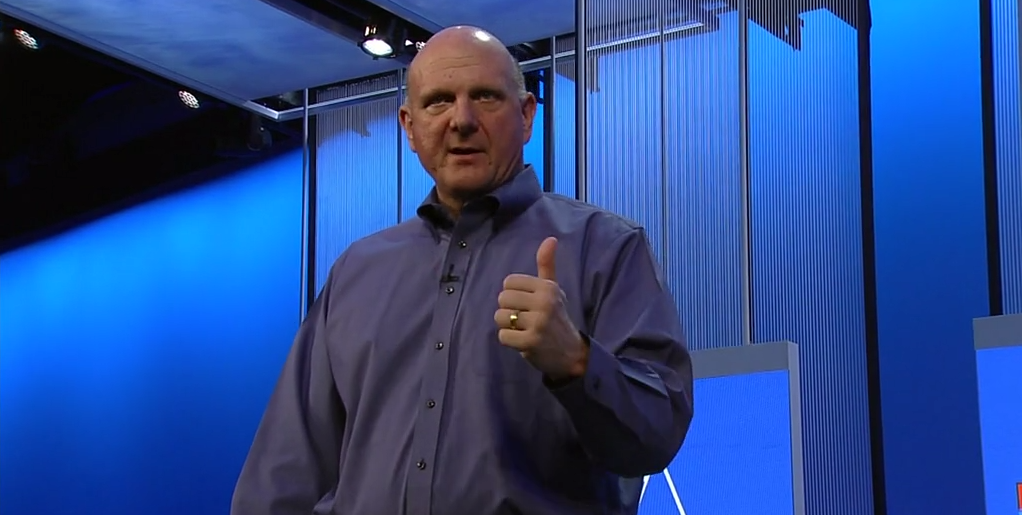
Steve Ballmer's hits and misses from Build 2013 keynote
Perpetual release cycles. Windows 8.1. The unified Windows ecosystem. If there are any key takeaways to remember from Microsoft's cornerstone keynote at the Build 2013 conference, these three items would sum it up quite well. Microsoft CEO Steve Ballmer reminded thousands of developers on stage last week that the company isn't getting left in the dust and it has a solid plan going forward.
While most of the tech world was keenly focused solely on Build 2013 as the gateway to the first official peek at Windows 8.1, Ballmer's keynote had a few other important messages to deliver. The Windows update, formerly known as "Blue", may have stole the show but Microsoft had a grander agenda to piggyback at the developer conference.

Microsoft SkyDrive Pro apps for Windows 8 and iOS
Welcome to the cloud. Microsoft hopes it is not a dark and ominous one. The company is in competition with Amazon, Dropbox and others to get your business in today's growing storage market and is trying to get the upper hand by tightly integrating its SkyDrive service into the latest builds of Windows and Office.
Now the company announces further integration with new Pro apps for both Windows 8 and iOS. "We are pleased to announce that the SkyDrive Pro apps for Windows 8 and iOS are now available in the Windows Store and Apple Store respectively for SharePoint Online users in Office 365. After signing in to your Office 365 account, you can access, view, and upload your documents from anywhere", says senior product manager Mark Kashman.
